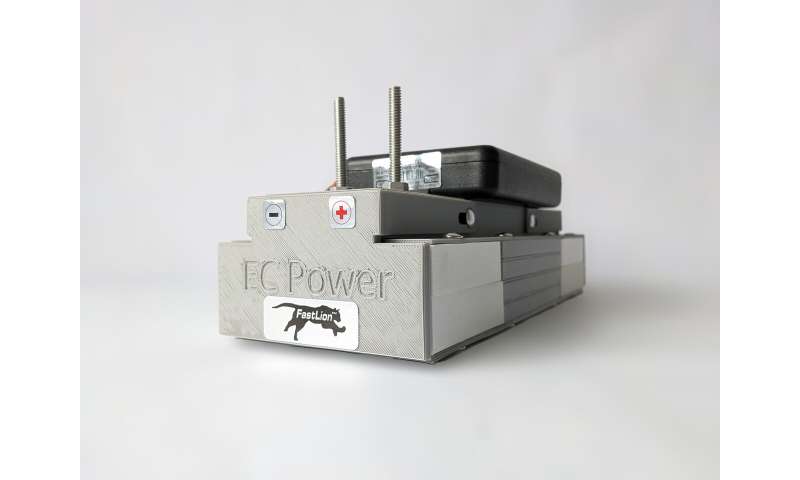Best of Last Week—A record-breaking gamma burst, a new battery for cars, new insights into long COVID

It was a good week for space science as a team working at the Gemini South telescope in Chile observed a record-breaking gamma-ray burst—possibly the most powerful explosion ever recorded. Also, a combined team from Liverpool John Moores University and the University of Montpellier discovered that massive stars sound a warning when they are about to go supernova. They become 100 times fainter due to material obscuring their light. And a team of researchers with members from Princeton University, the University of Texas at San Antonio, the University of Waikato, Los Alamos National Laboratory and the Southwest Research Institute discovered that rippled structures exist in the part of space that lies at the boundary of the solar system.
In technology news, a team at the University of Glasgow developed a system called ThermoSecure that is able to reveal computer and smartphone passwords in seconds—the AI-based system uses heat left by fingerprints to find where fingers have typed a password. Also, a team with members from Pennsylvania State University, the Beijing Institute of Technology and EC Power announced a battery technology breakthrough that could pave the way for mass adoption of affordable electric cars. Another team at Pennsylvania State University developed a sensor that can tap into mobile vibrations to eavesdrop remotely. Also, a team at Ensign InfoSecurity, announced that they had developed an image recognition tool for detecting typosquatting attacks—called TypoSwype, it is based on advanced image recognition techniques that convert strings into images.
In other news, a team with members affiliated with a host of institutions across the U.S., found via survey that more than 40% of Americans misled others about having COVID-19 and their use of precautions during the pandemic. Also, a team with members from several institutions in the U.S. and one in Belgium found evidence suggesting that per- and polyfluoroalkyl substance contamination should be presumed at over 57,000 U.S. sites. Generally called PFAS, the chemicals break down very slowly and have been found to be harmful to humans and animals. And finally, a combined team from Kaiser Permanente, the Mid-Atlantic Permanente Research Institute and Johns Hopkins University reported on their research that shed new light on long COVID conditions.
© 2022 Science X Network